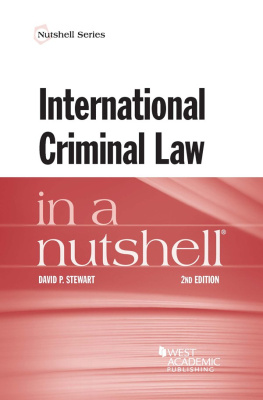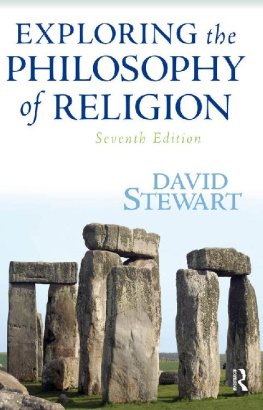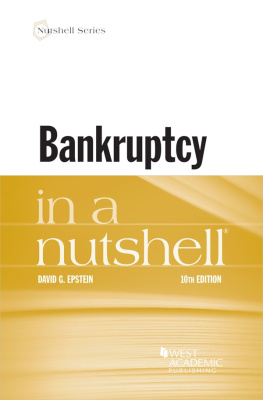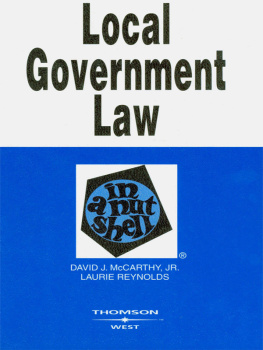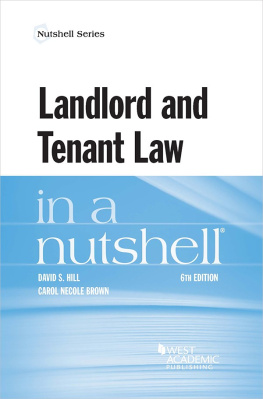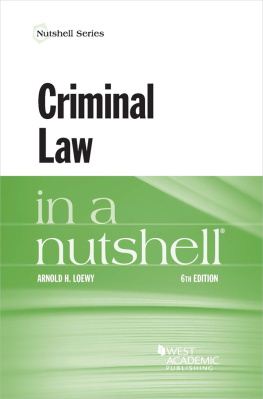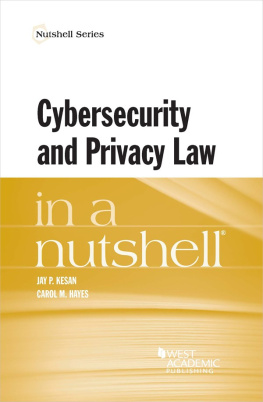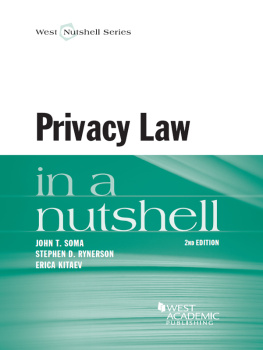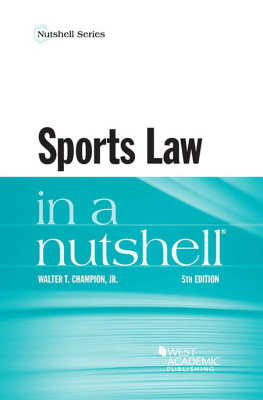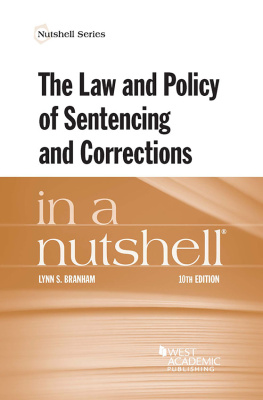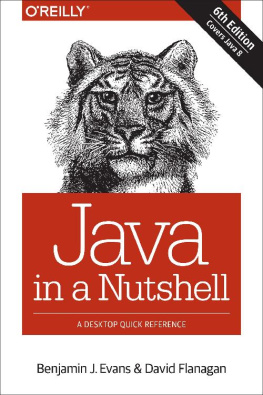David Stewart - International Criminal Law in a Nutshell (Nutshells)
Here you can read online David Stewart - International Criminal Law in a Nutshell (Nutshells) full text of the book (entire story) in english for free. Download pdf and epub, get meaning, cover and reviews about this ebook. year: 2019, publisher: West Academic, genre: Politics. Description of the work, (preface) as well as reviews are available. Best literature library LitArk.com created for fans of good reading and offers a wide selection of genres:
Romance novel
Science fiction
Adventure
Detective
Science
History
Home and family
Prose
Art
Politics
Computer
Non-fiction
Religion
Business
Children
Humor
Choose a favorite category and find really read worthwhile books. Enjoy immersion in the world of imagination, feel the emotions of the characters or learn something new for yourself, make an fascinating discovery.
- Book:International Criminal Law in a Nutshell (Nutshells)
- Author:
- Publisher:West Academic
- Genre:
- Year:2019
- Rating:4 / 5
- Favourites:Add to favourites
- Your mark:
- 80
- 1
- 2
- 3
- 4
- 5
International Criminal Law in a Nutshell (Nutshells): summary, description and annotation
We offer to read an annotation, description, summary or preface (depends on what the author of the book "International Criminal Law in a Nutshell (Nutshells)" wrote himself). If you haven't found the necessary information about the book — write in the comments, we will try to find it.
International Criminal Law in a Nutshell (Nutshells) — read online for free the complete book (whole text) full work
Below is the text of the book, divided by pages. System saving the place of the last page read, allows you to conveniently read the book "International Criminal Law in a Nutshell (Nutshells)" online for free, without having to search again every time where you left off. Put a bookmark, and you can go to the page where you finished reading at any time.
Font size:
Interval:
Bookmark:

West Academic Publishings Law School Advisory Board
Jesse H. Choper
Professor of Law and Dean Emeritus
University of California, Berkeley
Joshua Dressler
Distinguished University Professor Emeritus,
Frank R. Strong Chair in Law
Michael E. Moritz College of Law, The Ohio State University
Yale Kamisar
Professor of Law Emeritus, University of San Diego
Professor of Law Emeritus, University of Michigan
Mary Kay Kane
Professor of Law, Chancellor and Dean Emeritus
University of California, Hastings College of the Law
Larry D. Kramer
President, William and Flora Hewlett Foundation
Jonathan R. Macey
Professor of Law, Yale Law School
Arthur R. Miller
University Professor, New York University
Formerly Bruce Bromley Professor of Law, Harvard University
Grant S. Nelson
Professor of Law Emeritus, Pepperdine University
Professor of Law Emeritus, University of California, Los Angeles
A. Benjamin Spencer
Justice Thurgood Marshall Distinguished Professor of Law
University of Virginia School of Law
James J. White
Robert A. Sullivan Professor of Law Emeritus
University of Michigan
International Criminal Law
In a nutshell
Second Edition
DAVID P. STEWART
Professor from Practice
Georgetown University Law Center

The publisher is not engaged in rendering legal or other professional advice, and this publication is not a substitute for the advice of an attorney. If you require legal or other expert advice, you should seek the services of a competent attorney or other professional.
Nutshell Series, In a Nutshell and the Nutshell Logo are trademarks registered in the U.S. Patent and Trademark Office.
2014 LEG, Inc. d/b/a West Academic Publishing
2019 LEG, Inc. d/b/a West Academic
444 Cedar Street, Suite 700
St. Paul, MN 55101
1-877-888-1330
West, West Academic Publishing, and West Academic are trademarks of West Publishing Corporation, used under license.
Printed in the United States of America
ISBN: 978-1-64020-598-7
Preface to the Second Edition
The purpose of this book is to provide a self-contained introduction to the increasingly important field of international criminal law. It is aimed primarily at the beginning student and to complement the growing number of textbooks and treatises now in use in U.S. law schools. However, it may also serve as a helpful field guide for practitioners and others new to the topic.
Although its origins extend far back in history, international criminal law has taken definitive shape only in the past two decades. The war crimes trials at Nuremberg and Tokyo following World War II marked the first time that the international community acted to punish former high-level government officials for violations of international law. At the time, they seemed to offer the prospect of a truly international system of justice.
Yet the Cold War intervened, and it was nearly half a century before the international community again acted. The establishment of the ad hoc tribunals for the former Yugoslavia and Rwanda and the subsequent creation of a permanent International Criminal Court, along with the exercise by some national courts of jurisdiction over individuals accused of the most serious violations of human rights, like former Chilean Head of State Augusto Pinochet, indicate new emphasis on the individual responsibility of State agents for their actions.
The field of international criminal law continues to evolve, institutionally and normatively. It now boasts a number of international and hybrid tribunals as well as an increasing array of treaties and agreements articulating international crimes and providing a basis for international cooperation such as extradition and mutual legal assistance. National authorities more frequently prosecute individuals for transnational or international offenses, and domestic courts are more often empowered to exercise extraterritorial criminal jurisdiction. Victims of widespread atrocities seek to recover compensation in the courts of foreign States under theories of universal jurisdiction.
More and more attorneys have had relevant experience in the field, either though work at the International Criminal Court, at an ad hoc or hybrid court or one of the human rights bodies, or as domestic prosecutors. Domestic practitioners increasingly encounter issues of international criminal law. In short, while it was once the purview of a few academics and scholars, international criminal law is more and more a main stream topic.
Like its predecessor, this second edition of the Nutshell focuses on the core concepts, institutions, and principles in an effort to make the field accessible to students and practitioners alike. It is not intended to be a comprehensive treatment but rather to provide an overview and to point the way for further investigations into particular topics.
David P. Stewart
January 2019
Acknowledgments
I am indebted to a number of wonderful student assistants at Georgetown University Law Center who provided invaluable research and writing contributions in the preparation of this book. Among those who contributed to the first edition were Adam Coady, Garrett Traub, Abhimanyu George Jain, Arielle N. Greenbaum, Meg Parker, and John Michael Allen. For the second edition, I was ably assisted by Shivani Sanghavi. My sincere thanks to all of them.
General References
An enormous literature is available today in the field of international criminal law. For purposes of simplicity and clarity, I have chosen to keep references in the text of this Nutshell to a minimum, concentrated in the further reading notes at the end of each chapter. For those wishing to delve deeper, the following may be helpful.
Textbooks . Quite a few law schools now teach courses on international criminal law, and the various textbooks in use offer a useful source of additional information. Naturally, I am strongly partial to Luban, OSullivan, Stewart and Jain, International and Transnational Criminal Law (3d ed. Aspen 2018). It offers perhaps the most detailed discussion of the various central issues in the field.
Other textbooks currently in use are Podgor, Clark and Dervan, International Criminal Law: Cases and Materials (4th ed., LexisNexis, 2016); McCormack, International Criminal Law: Cases and Materials (West Academic, 2015); Van Schaack and Slye, International Criminal Law and Its Enforcement: Cases and Materials (Foundation, 3rd ed., 2014); Paust, Scharf, Sadat, Grul & Zagaris, International Criminal Law: Cases and Materials (Carolina, 4th ed. 2013); and Cassese, Aquaviva, Fan & Whitley, International Criminal Law: Cases and Commentary (Oxford 2013).
Treatises. In addition, a significant number of treatises have been published in the field over the past few years, each with varying orientations and emphases. For further reading or research, I recommend the following: Kastner, ed., International Criminal Law in Context (Routledge 2018); deGuzman, Arcs of Global Justice: Essays in Honour of William Schabas (Oxford 2018); Boister, An Introduction to Transnational Criminal Law (2d ed. Oxford 2018); Oxford Handbook on International Criminal Law (Oxford 2017); Guilfoyle, International Criminal Law (Oxford 2016); van der Witt , Legal Responses to Transnational and International Crimes: Towards an Integrative Approach (Elgar 2017); Ambos, Treatise on International Criminal Law (Oxford 2016); Schabas, The Cambridge Companion to International Criminal Law (Cambridge 2016); Roger Clark, International Criminal Law (Oxford 2015); Cassese, Gaeta, Baig, Fan, Gosnell & Whiting, eds., Casseses International Criminal Law (Oxford, 3rd ed. 2013).
Font size:
Interval:
Bookmark:
Similar books «International Criminal Law in a Nutshell (Nutshells)»
Look at similar books to International Criminal Law in a Nutshell (Nutshells). We have selected literature similar in name and meaning in the hope of providing readers with more options to find new, interesting, not yet read works.
Discussion, reviews of the book International Criminal Law in a Nutshell (Nutshells) and just readers' own opinions. Leave your comments, write what you think about the work, its meaning or the main characters. Specify what exactly you liked and what you didn't like, and why you think so.

